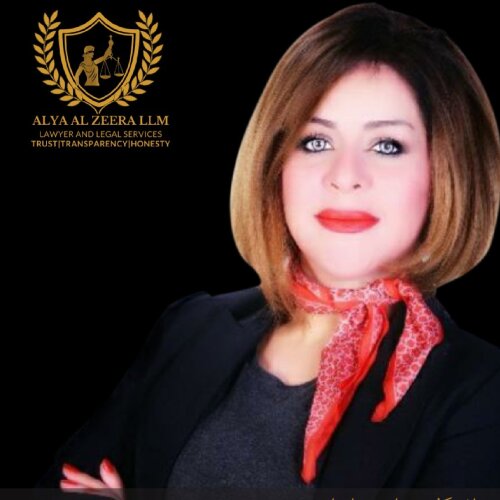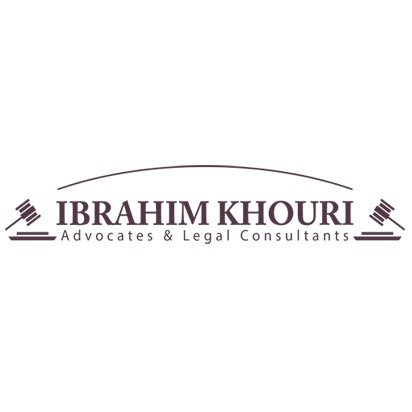Best Reinsurance Lawyers in Dubai
Share your needs with us, get contacted by law firms.
Free. Takes 2 min.
List of the best lawyers in Dubai, United Arab Emirates
About Reinsurance Law in Dubai, United Arab Emirates
Reinsurance in Dubai, United Arab Emirates, is a complex and specialized area of the insurance industry that involves the transfer of risk from a primary insurer to another insurer, known as the reinsurer. This sector plays a critical role in stabilizing the financial capacity of insurance companies in the region. Dubai, as a major financial hub in the Middle East, has established a robust legal framework to support the reinsurance industry, which is regulated by the UAE Insurance Authority. The reinsurance market in Dubai is known for its dynamic growth, innovative solutions, and adherence to international best practices.
Why You May Need a Lawyer
Individuals and companies may require legal assistance in reinsurance for various reasons. Common situations include:
- Negotiating and drafting reinsurance contracts to ensure they are clear, comprehensive, and compliant with UAE laws.
- Dispute resolution arising from reinsurance agreements, where interpretation or obligations are contested.
- Navigating regulatory compliance, ensuring adherence to evolving laws and regulations governing the industry.
- Handling mergers and acquisitions of reinsurance entities, requiring due diligence and legal oversight.
- Seeking legal advice on complex claims handling and financial recovery strategies in the event of significant losses.
Local Laws Overview
The key aspects of local laws relevant to reinsurance in Dubai include:
- The UAE Federal Law (No. 6 of 2007) concerning the Establishment of Insurance Authority & Organization of its Operations, which provides the foundational regulatory framework for both insurers and reinsurers.
- The UAE Insurance Authority’s guidelines and regulations that set standards for financial solvency, risk management, and operational conduct, applicable to reinsurance companies.
- International reinsurance treaties and conventions to which the UAE is a signatory, affecting the regional regulatory landscape.
- Regulations concerning the licensing and operation of reinsurance companies within the UAE, which detail the requirements for foreign reinsurers wanting to operate in the Dubai market.
Frequently Asked Questions
What is reinsurance, and why is it important?
Reinsurance is the process by which an insurance company transfers portions of its risk portfolios to other parties to reduce the likelihood of paying a large obligation resulting from an insurance claim. It provides financial stability and protects insurers from catastrophic losses.
Is reinsurance mandatory for insurance companies in Dubai?
While reinsurance itself is not mandatory, it is highly recommended for insurance companies to manage risk and maintain financial stability effectively. Reinsurance can also be a regulatory requirement depending on the size and risk exposure of the insurer.
How is the reinsurance industry regulated in Dubai?
The Insurance Authority of the UAE is responsible for regulating the reinsurance industry in Dubai. It establishes guidelines for licensing, operations, and financial practices, ensuring the industry adheres to international standards.
Can foreign reinsurers operate in Dubai?
Yes, foreign reinsurers can operate in Dubai, but they must comply with the UAE Insurance Authority's specific licensing requirements and regulatory provisions.
What types of reinsurance contracts are common in Dubai?
The two most common types of reinsurance contracts are treaty reinsurance and facultative reinsurance, both of which are widely used depending on the specific risk management strategies of the insurer.
How can disputes in reinsurance contracts be resolved?
Disputes can be resolved through negotiation, arbitration, or litigation, depending on the terms of the contract and the parties' preference for conflict resolution mechanisms.
What are some challenges facing the reinsurance industry in Dubai?
Challenges include regulatory changes, market competition, geopolitical risks, and ensuring financial solvency amid large-scale claims.
How do digital technologies impact reinsurance in Dubai?
Digital technologies are transforming the reinsurance sector through enhanced data analytics, risk assessment, and contract processing, improving efficiency and accuracy in underwriting and claims handling.
What role do reinsurance brokers play in Dubai?
Reinsurance brokers act as intermediaries between insurers and reinsurers, helping to negotiate and place reinsurance agreements that align with the risk management needs and preferences of insurers.
How does Islamic law affect reinsurance practices in Dubai?
Takaful, an Islamic insurance concept, is offered in line with Sharia principles. Reinsurance under takaful arrangements, known as retakaful, must also comply with these principles, affecting contract structures and risk management.
Additional Resources
For further assistance, consider reaching out to the following resources:
- The UAE Insurance Authority - Responsible for regulation and oversight of the insurance and reinsurance industry.
- Dubai International Financial Centre (DIFC) - Provides a legal and business framework for financial services, including reinsurance.
- The Insurance Business Group (IBG) in Dubai - A platform for industry professionals to connect and discuss developments in the insurance sector.
Next Steps
If you require legal assistance in reinsurance, consider these steps:
- Identify your specific legal needs and gather relevant documentation related to your reinsurance matters.
- Research and consult with experienced legal professionals specializing in insurance and reinsurance law in Dubai.
- Engage with a law firm or legal advisor familiar with the regulatory landscape and the intricacies of reinsurance contracts and disputes.
- Continuously monitor developments in local and international reinsurance regulations to ensure ongoing compliance and risk management.
Lawzana helps you find the best lawyers and law firms in Dubai through a curated and pre-screened list of qualified legal professionals. Our platform offers rankings and detailed profiles of attorneys and law firms, allowing you to compare based on practice areas, including Reinsurance, experience, and client feedback.
Each profile includes a description of the firm's areas of practice, client reviews, team members and partners, year of establishment, spoken languages, office locations, contact information, social media presence, and any published articles or resources. Most firms on our platform speak English and are experienced in both local and international legal matters.
Get a quote from top-rated law firms in Dubai, United Arab Emirates — quickly, securely, and without unnecessary hassle.
Disclaimer:
The information provided on this page is for general informational purposes only and does not constitute legal advice. While we strive to ensure the accuracy and relevance of the content, legal information may change over time, and interpretations of the law can vary. You should always consult with a qualified legal professional for advice specific to your situation.
We disclaim all liability for actions taken or not taken based on the content of this page. If you believe any information is incorrect or outdated, please contact us, and we will review and update it where appropriate.
















